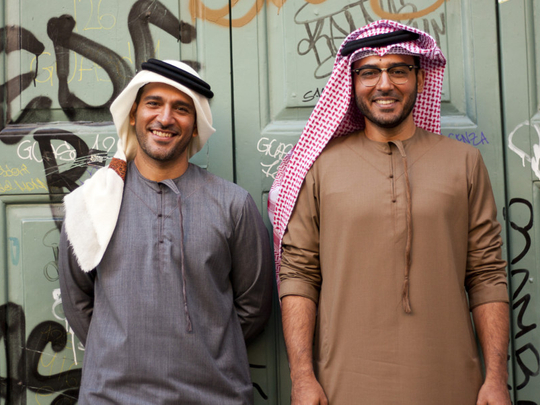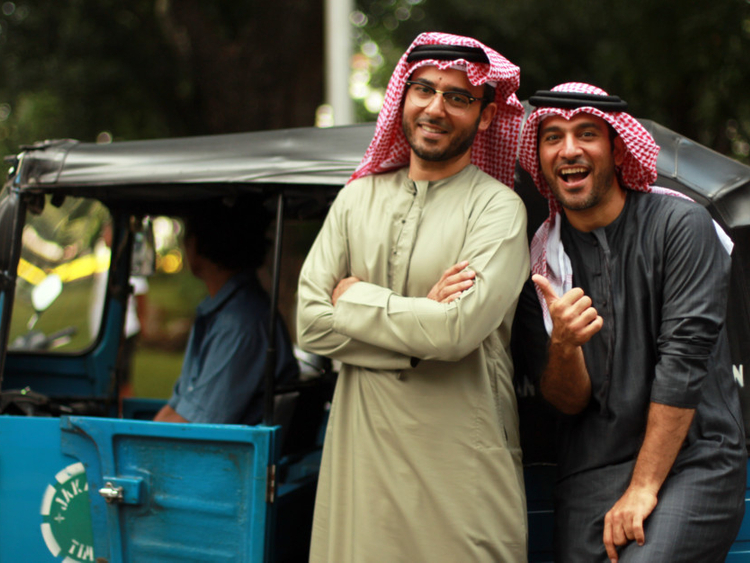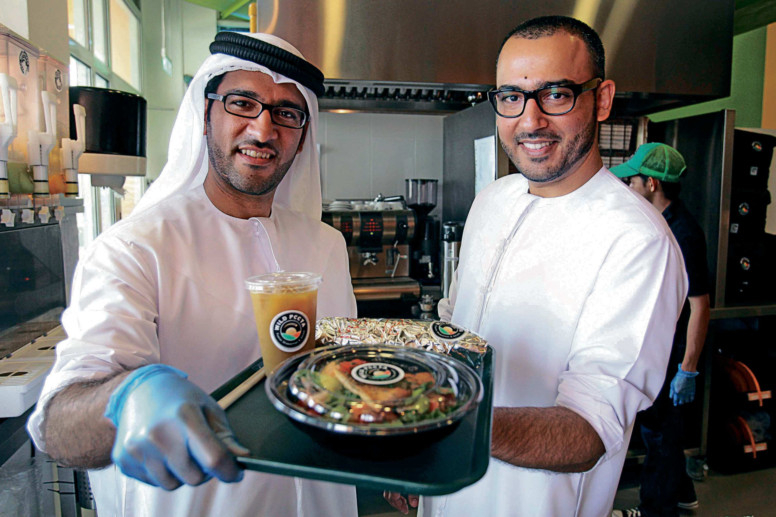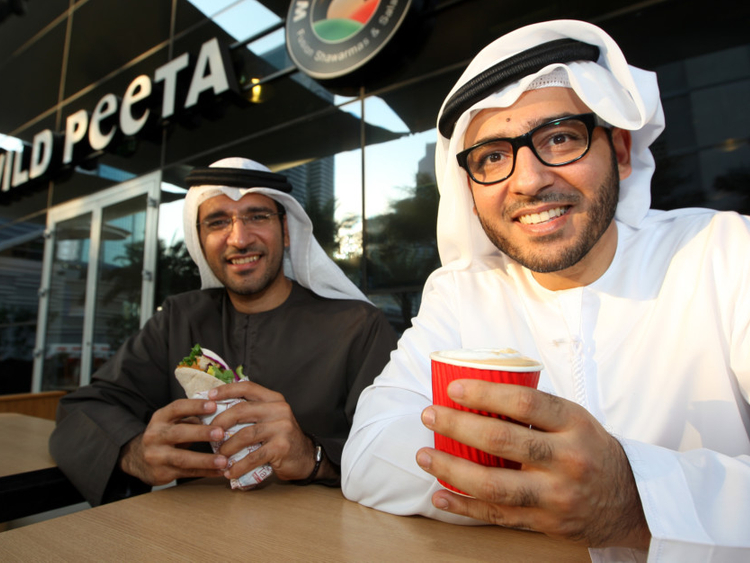
Sometimes you need to go back to the cutting board and start afresh. Mohammad and Peyman Parham Al Awadhi are at just that point right now.
The Emirati brothers want to relaunch the much-loved fusion shawarma concept Wild Peeta by the end of the summer and have asked the UAE community to help crowdfund the new venture.
“We’re asking for $50,000 [Dh183,650],” Mohammad told Gulf News tabloid! over the phone.
“We’ve always wanted to bring the brand back, but we need to make sure that people want it, and that there is a market for it. So we’re asking the community to put their money where their mouths are. That’s 500 people who put in $100 each.”
A homegrown concept, Wild Peeta was one of the very first brands to be born of the digital ecosystem, with a fanbase built largely on Twitter and later YouTube.
Using initial funding from Dubai SME, the pair of marketing professionals capitalised on the platforms’ reach to build and promote the brand as well as to leverage the hive mind to beta-test new ideas and recipes.
But a combination of being new to enterprise and expanding too quickly left them with no option but to stop operations as they regrouped and rebooted.
In the interim, they launched a food travel series Peeta Planet, which took them to 24 countries, where they went off the beaten track to places crowd-sourced from fans’ and followers’ recommendations.
With an estimated reach of 50 million viewers, the ‘social TV’ experiment doubled up as a research and development project for the Wild Peeta mother brand.
Nearly a decade on from when they opened their first restaurant in 2009, in the wake of the economic downturn, the Xennial (people born between Generation X and Millennials) siblings have now set up an Indiegogo page to raise the initial investment they need for Wild Peeta 2.0.
Within less than a week, eight people have contributed $3,475, or 7 per cent of the goal. “And behind the scenes we’ve already had four offers from investors,” says Peyman, 41.
Early backers receive store credit over the amount spent as well as other incentives. A $100 investment buys meals worth $108, for example, while at the top end, someone investing $5,000 gets store credit worth $5,400 and a dish named after them, among other benefits.
“At the end of the day, we’re selling food, but at our core, we’re a community brand,” Peyman adds, explaining how they organised a majlis with a dozen hardcore fans recently to determine both, whether there’s still an appetite for a hip shawarma brand, and what that rebooted concept could look like. “The community is everything for us.”
While pricing remains to be determined, the new menu will likely combine some of the most popular items from the previous incarnation while adding in a host of new global-nomad street food inspirations from their travels, as seen on Peeta Planet.
Each sandwich channels a different episode, Mohammad says. The Argentinian is a nod to the Locos X en Asado barbecue specialists the Al Awadhis met on their first show, while the Mexican will reference the nation’s luchadores or wrestlers.
“Peeta Planet was a big education for us. We were able to talk to vendors in Japan and India and Latin America, and we’ve found what sets the great street food concepts apart is good food and great service,” the 44-year-old says. “We are going to have an adventure in every peeta.”
“But the sweetheart of our menu is the Khaleeji, which is influenced by our mother’s saloona [stew], and we’ve turned [it] into a shawarma filling,” Peyman jumps in. As one of their original bestsellers, it’s making a triumphant return (albeit as an evolved version, mom-approved of course), alongside their famous tea-based magic juice and the tahini brownie.
As before, the aim is to offer healthy options as much as possible, both in terms of quality and fresh ingredients. The Argentinian sandwich will come with a kale chimichurri, for example. They also promise to bake their bread inhouse, not to use frozen ingredients, and to give away what’s left at the end of the day’s operations.
“One of the things our mum instilled in us when we were growing up was that food should be real — no artificial flavours, no colours or preservatives, none of that rubbish, which is frankly one of the reasons we have one of the highest obesity rates in the world in the Gulf.
"It happened because we let every major junk food franchise open up in the UAE on every street. And now we suffer. The question I want to give to people is, how much is your health worth — if you save on food, but you’re paying ridiculous amounts in healthcare. We are what we eat,” Peyman says.
“When people came into our store, they saw us chopping everything from scratch, pureeing carrots, using fresh herbs, real spices, no enhancers, no MSG. And we need to go back to that.”
Fantastic as that sounds, the brothers also recognise their limitations, and will not relaunch without a strong food and beverage industry partner. Their new business model requires a level of knowledge and operational experience that the Al Awadhis acknowledge they don’t have, and they are looking for the partner to match their crowdfunded investment with an equal $50,000, as well as a space.
The idea is to launch with a shop in shop, and leverage the partner’s existing infrastructure, from purchase to delivery. “It’s a simple, efficient approach that keeps the focus on making sure the food and service are at their best,” Mohammad explains.
They hope to open in the Jumeirah Beach Residence or Dubai Media City area, and if the concept works, they will scale up, obviously with the backing of their business partner.
That softly-softly approach is a direct consequence of their previous experience. Which is also why they’ve projected their initial investment at what is a fraction of the minimum of $1 million other restaurateurs say they need to bring a concept to market.
“Anyone that starts a business with $1 million is already setting off on the back foot. That’s absolutely ridiculous,” Mohammad says.
“Wild Peeta 1 is our teacher, Wild Peeta 2 is our redemption in a way, and in the interim we’ve become very good hustler. You have to hustle. We’ve learned is only to ask for money that you need. And to keep things small and simple and do them well.”















